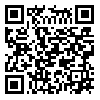Volume 64, Issue 8 (13 2006)
Tehran Univ Med J 2006, 64(8): 22-30 |
Back to browse issues page
Download citation:
BibTeX | RIS | EndNote | Medlars | ProCite | Reference Manager | RefWorks
Send citation to:



BibTeX | RIS | EndNote | Medlars | ProCite | Reference Manager | RefWorks
Send citation to:
Gharegozl Ki, Abbasi siar F, Kolahi A.A, Bolhari J, Zaman GH, Keyhanidoost ZT et al . Public knowledge and attitudes toward Epilepsy in Tehran. Tehran Univ Med J 2006; 64 (8) :22-30
URL: http://tumj.tums.ac.ir/article-1-908-en.html
URL: http://tumj.tums.ac.ir/article-1-908-en.html
Gharegozl Ki * 
 , Abbasi siar F
, Abbasi siar F 
 , Kolahi A.A
, Kolahi A.A 
 , Bolhari J
, Bolhari J 
 , Zaman GH
, Zaman GH 
 , Keyhanidoost ZT
, Keyhanidoost ZT 
 , Poortaherian P
, Poortaherian P 


 , Abbasi siar F
, Abbasi siar F 
 , Kolahi A.A
, Kolahi A.A 
 , Bolhari J
, Bolhari J 
 , Zaman GH
, Zaman GH 
 , Keyhanidoost ZT
, Keyhanidoost ZT 
 , Poortaherian P
, Poortaherian P 

Abstract: (6097 Views)
Background: Despite advances in medical science and modern technology, epilepsy remains as a stigmatized condition and negative public attitude toward epilepsy is a common phenomenon especially in developing countries such as Iran. It is the major factor causing serious social discrimination against people with epilepsy which in turn may be more devastating than the disorder itself. Thorough understanding of the knowledge and attitudes toward epilepsy is essential to modify these negative attitudes.
Methods: We conducted a face-to-face questionnaire interview survey in crowd locations of Tehran in August, 2004-April 2005. A total of 1079 persons all more than 15 years old were asked to fill the questionnaire.
Results: Eighty eight percent of respondents had heard about epilepsy before, 42.2% of them knew one person with epilepsy. However, out of responses about the causes of epilepsy, 52/4% said it was caused by brain damage, 26.4% said it was an inherited disease,, 14.3% said it was due to fever, 34.8% believed stress as the cause of it and1.1% said evil spirits was the cause. 56.9% considered pregnancy to be appropriate for epileptics. 94% believed children with epilepsy could go to school and have normal education.
Conclusion: According to this survey, public knowledge and attitudes about epilepsy in study population is not satisfactory. It is suggested that additional efforts must be made to increase the knowledge of the general population through education programs especially among school children.
Methods: We conducted a face-to-face questionnaire interview survey in crowd locations of Tehran in August, 2004-April 2005. A total of 1079 persons all more than 15 years old were asked to fill the questionnaire.
Results: Eighty eight percent of respondents had heard about epilepsy before, 42.2% of them knew one person with epilepsy. However, out of responses about the causes of epilepsy, 52/4% said it was caused by brain damage, 26.4% said it was an inherited disease,, 14.3% said it was due to fever, 34.8% believed stress as the cause of it and1.1% said evil spirits was the cause. 56.9% considered pregnancy to be appropriate for epileptics. 94% believed children with epilepsy could go to school and have normal education.
Conclusion: According to this survey, public knowledge and attitudes about epilepsy in study population is not satisfactory. It is suggested that additional efforts must be made to increase the knowledge of the general population through education programs especially among school children.
| Rights and permissions | |
 |
This work is licensed under a Creative Commons Attribution-NonCommercial 4.0 International License. |



